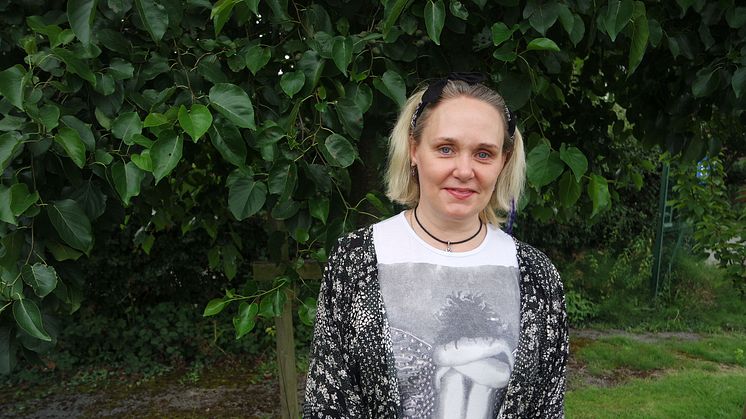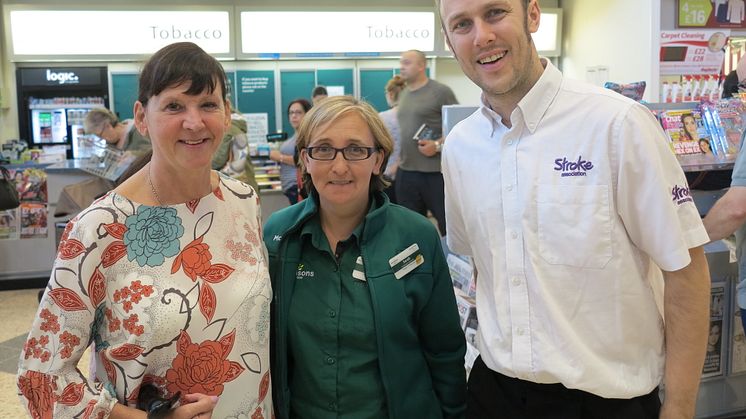
Press release -
Prescot stroke survivor adds her voice to Lost for Words campaign
Prescot stroke survivor, Pamela Bateman-Lee, 48 is one of the thousands of people living with communication difficulties after a stroke.
Pamela, a mother of two, had a severe stroke in April 2013, which left her unable to speak for two years and unable to move her right hand side. However despite her communication difficulties, Pamela has since rediscovered her passion for performing and has recently joined a new theatre company and choir in Liverpool.
A former Stop Smoking Practitioner, Pamela had worked for the NHS for seven years when she had a stroke which left her unable to speak at all. Talking about the incredibly difficult time she experienced, Pamela said: “I wanted to die.”
Speech and language therapists visited Pamela at home, but advised she was unlikely to improve and the visits stopped, despite Pamela’s requests for more support.
Pamela was then supported by the Stroke Association, and went along to the charity’s Merseyside Life after Stroke Group in Aintree, a group she found daunting at first. She added: “I came to the group but couldn’t speak.”
However, now four years later, Pamela’s speech is improving hugely and she is able to have conversations, also using a speech assistant app on her phone to jot down words and short sentences when she is unable to say them aloud.

As well as attending the Merseyside Life After Stroke Group each week, Pamela has immersed herself in a variety of hobbies, including taking to the stage with the local Grin Theatre Repertory Group and Valley Theatre Group. She attends workshops each week and is working towards Grin’s musical production and Valley’s pantomime, while also writing her first play for Grin about stroke and aphasia. Pamela has also been involved with Liverpool’s IChoir for the past two years, performing across the region, as well as the Liverpool Pirate Brethren re-enactment group.
She added: “I love performing. Drama and the choir are my happy place.”
Pamela recently went one step further and performed her own stand-up comedy routine, alongside 11 stroke survivors from Merseyside in a comedy showcase evening led by the Comedy Trust and the Stroke Association.
Pamela’s advice to anyone left with aphasia after a stroke is: “Stay calm. You need time to think and find the words.”
The Stroke Association’s Lost for Words campaign aims to raise awareness of the challenges stroke survivors with communication difficulties can face, and help and support available.
Diane Dunn, Information Advice & Support Coordinator at the Stroke Association, said: “After a stroke, around one in three people like Pamela have difficulty communicating, which can be both terrifying and isolating. But with the right help and support, many stroke survivors are able to find new ways to communicate, and can rebuild their lives. Since Pamela has been attending the Merseyside Life after Stroke Group she has gone from strength to strength. I’m so proud of her recovery.”
More than 350,000 people in the UK have aphasia, a communication disability which can be caused by stroke. The Stroke Association is urging people to show their support for stroke survivors who are lost for words and make a donation. For more information, visit www.stroke.org.uk/lostforwords.
Topics


